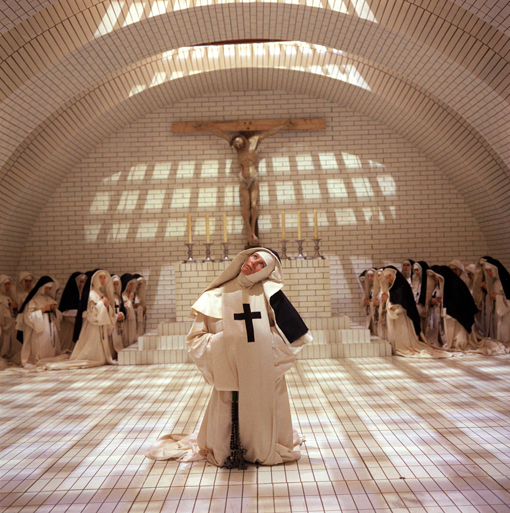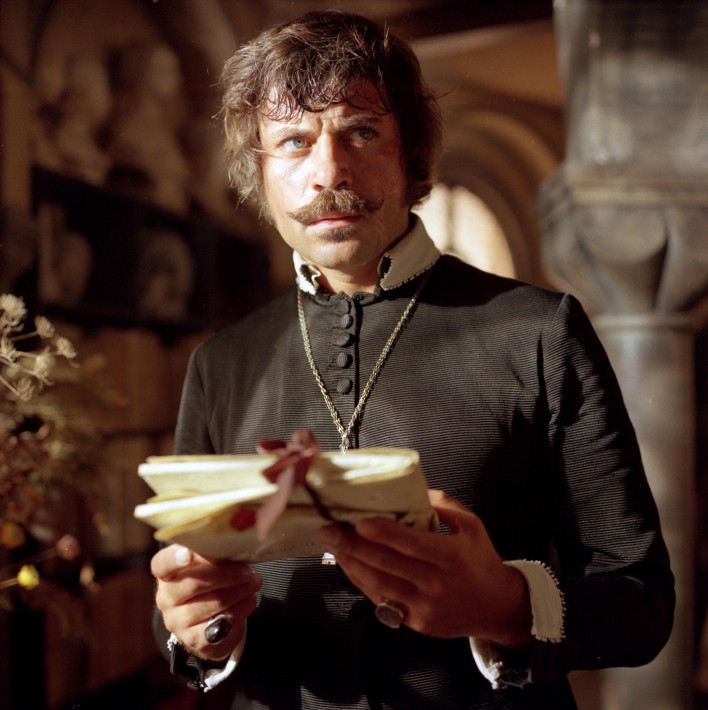2012. GB. DVD. 107 minutes (plus 2 hours of extras). BFI Home Video. Certificate 18. Price: £19.99
 About the Author: Dr Brian Hoyle lectures in film studies at the University of Dundee and is currently completing a monograph on the films of John Boorman and researching articles on Ken Russell and the Pre-Raphaelites; Music in the films of Powell and Pressburger and Benjamin Britten at the BBC. He has also recently contributed entries on 'British Art Cinema' and several key British art films to Intellect Press' forthcoming Directory of British Cinema.
E-mail: B.P.Hoyle@dundee.ac.uk
About the Author: Dr Brian Hoyle lectures in film studies at the University of Dundee and is currently completing a monograph on the films of John Boorman and researching articles on Ken Russell and the Pre-Raphaelites; Music in the films of Powell and Pressburger and Benjamin Britten at the BBC. He has also recently contributed entries on 'British Art Cinema' and several key British art films to Intellect Press' forthcoming Directory of British Cinema.
E-mail: B.P.Hoyle@dundee.ac.uk
Perhaps unsurprisingly for a filmmaker who has never been fully appreciated in his native country, Ken Russell has not been very well served on DVD in the UK. A number of major films are still not available and until now only Tommy has received anything like ‘Special Edition’ treatment. Thankfully, this new edition of The Devils goes some way towards making amends for this. It is only a shame that Russell did not live to see the film that many consider to be his masterpiece finally get its due release.
The BFI have put together an impressive package. The film itself looks superb.
The BFI have put together an impressive package. The film itself looks superb. Even the film’s most vociferous detractors could not help but praise David Watkin’s cinematography and Derek Jarman’s sets, and more than ever one can see why. Jarman imagines Loudon as an ultra-modern city, with walls built from bleach white bricks and tiles and interiors constructed from jet black marble. Watkin, however, adds some expressionist splashes of colour to some scenes, giving the impression of light pouring in through a stained glass window. These little touches were barely noticeable on the previous VHS release of the film, but they come through strongly on this restored print. The video was also noticeably cropped from the original anamorphic ratio, but this too has thankfully been corrected, thus restoring Russell’s superb widescreen compositions.
... an essential purchase for Russell fans, students of film censorship and post-war British cinema
The first disc also contains a two minute introduction by Mark Kermode, perhaps the film’s greatest champion, who explains that the cut featured on this DVD is the original X-Rated cut shown in UK cinemas in the early 1970s. Russell, however, had hoped to restore recently rediscovered footage which had previously been censored by the BBFC. The studio however, refused to allow any of this undeniably strong material, including the climax to the film’s chaotic orgy scene, which has been dubbed ‘The Rape of Christ’, to be reinstated. Also featured are the UK and US theatrical trailers (neither remastered) and a full commentary, chaired by Mark Kermode with Russell; the film’s editor, Michael Bradsell; and documentarian, Paul Joyce. It is a fine commentary and Kermode keeps things rolling along, with a minimum of awkward silences. However, the most intriguing, and welcome, extra on disc one is Amelia and the Angel (1958), the amateur film which landed Russell his job at the BBC. This charming fable shows off Russell’s all-too-often forgotten lyrical side, and acts as the perfect palliative after the main feature, which remains a remarkably visceral experience forty years on, even in its cut version.
The second disk contains around 85 minutes of extra features, most notably Hell on Earth, Joyce’s fifty minute documentary on the making, censoring and attempted restoration of the film. It features contributions from Russell, Sir Peter Maxwell Davies, Alexander Walker, a former BBFC censor and many key cast and crew members and is an invaluable resource for admirers of Russell and the film, not least because it shows segments of most notorious censored sequences. The other extras are slighter, but still valuable. 'Director of Devils' offers insights into Maxwell Davies’ atonal score, which is one of the film’s triumphs and eight minutes of on-set footage shot by Bradsell shows off the sheer scale of Jarman’s sets. The disc is rounded off with a short Q&A between Russell and Kermode filmed at the NFT with the director in a mercurial mood. There is also a well illustrated booklet, which covers a lot of the same ground as the other extras but is useful for those who want a quick primer before watching the film.
It seems almost ungrateful to quibble, but one wonders why the BFI, who have been issuing some impressive Blu-Rays of late, chose not to put out a hi-definition copy of The Devils. Given the quality of the restoration, it would have been most welcome. Perhaps however, they are waiting for a ‘definitive’ edition in which Russell’s preferred cut could be showcased alongside the more familiar version included here. For the moment however, this is as fine a release of the theatrical version of The Devils as we are likely to get, and it is an essential purchase for Russell fans, students of film censorship and post-war British cinema.
Dr Brian Hoyle E-mail: B.P.Hoyle@dundee.ac.uk

